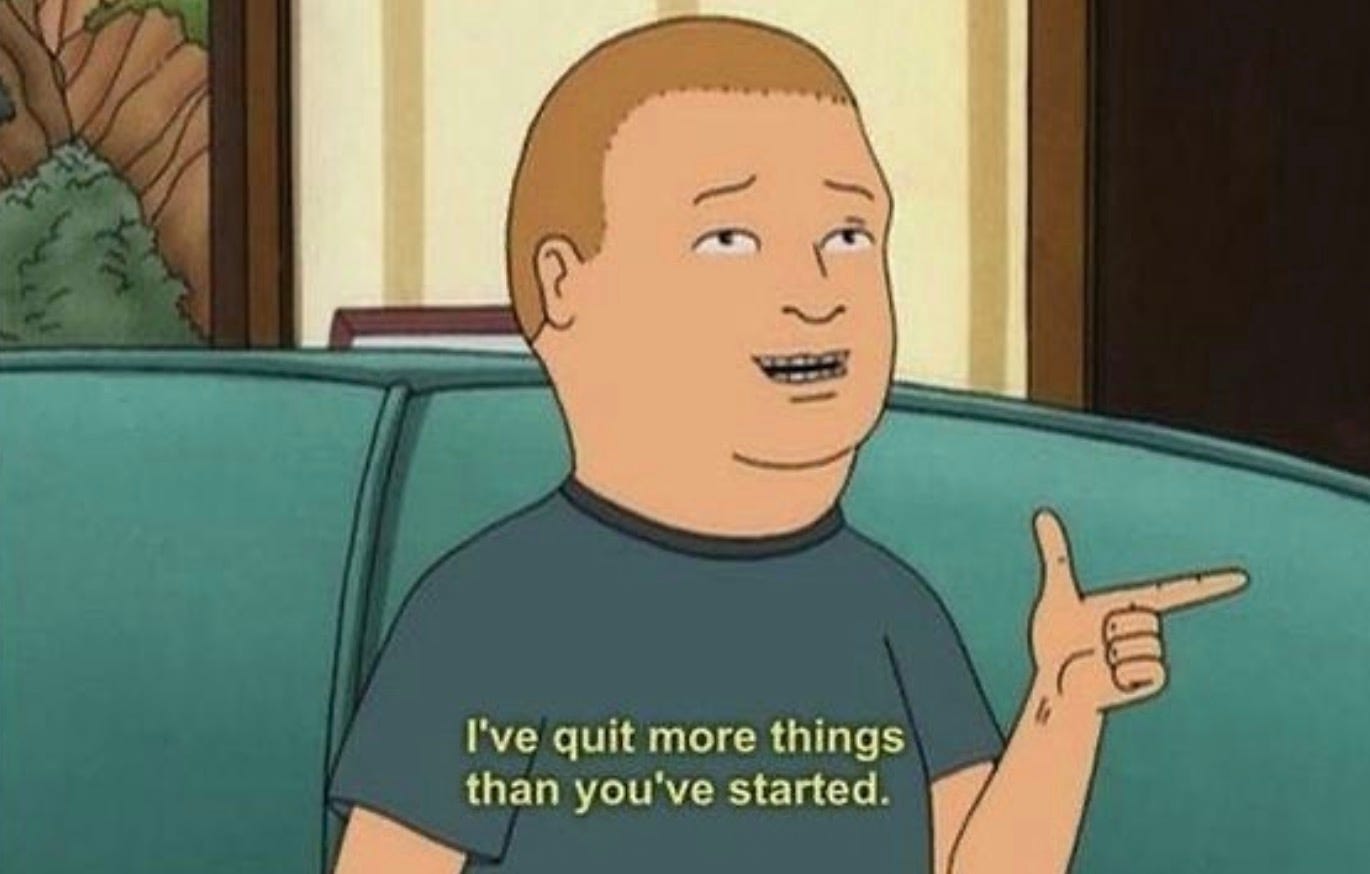When Should We Quit and How?
There’s an actual science to it!
“Success does not lie in sticking to things. It lies in picking the right thing to stick to and quitting the rest,” says Annie Duke, former professional poker player and best-selling author in cognitive-behavioural decision science. There’s a big difference between grit and quit – mostly that grit (or, sticking to things) is idealised and favoured by default in our society, and quitters are seen as, for lack of a better word, losers. But there’s plenty of science that suggests we persevere much longer than we should, especially in the face of bad news, which is when we often increase our commitment, but really shouldn’t. Duke’s book Quit: The Power of Knowing When to Walk Away investigates and maps out this topic by looking at economics, game theory and behavioural psychology. “When you quit on time, it usually feels like you quit too early,” she writes. “Quitting is ultimately a forecasting problem, meaning that when to quit is a problem of whether the future looks dire, not whether the present is dire. And a rosy present is a hard thing to walk away from.”
So how the hell do you become a better quitter? If the brand you enthusiastically started right after your MA Fashion still doesn’t gain any traction in its sixth season, how do you walk away from it when you’ve sunk all your money and waking hours into it? Is it worth hanging on by your fingernails or better to wrap it up and move on?


